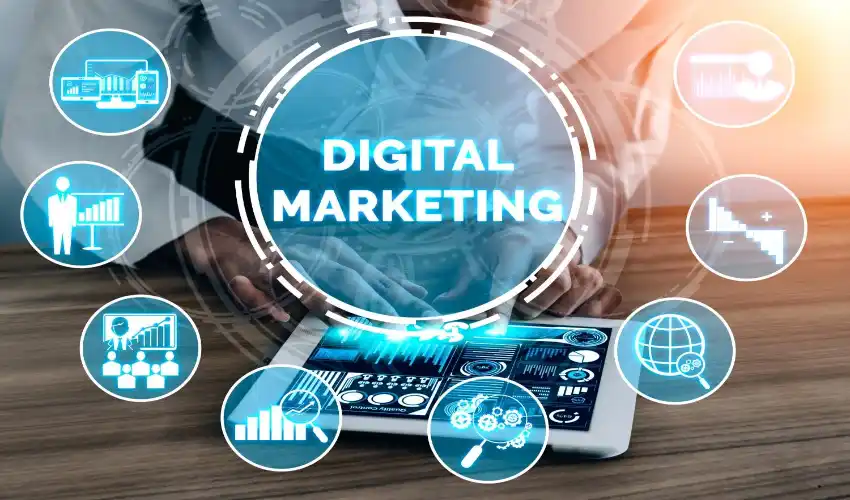
Latest Updates in the Digital Agency World
The digital agency world is evolving faster than ever, with new trends, technologies, and strategies shaping how businesses connect with their audiences. Staying updated is crucial for agencies and clients alike, as the digital landscape constantly shifts to accommodate new consumer behaviors, technological advancements, and competitive pressures. In recent months, several key updates have emerged that every digital agency professional should know to remain competitive.
One of the most significant trends in the Digital Agency News world is the rise of AI-driven marketing tools. Artificial intelligence is no longer just a buzzword; it is transforming how agencies plan campaigns, analyze data, and optimize results. AI-powered analytics platforms can now predict consumer behavior with unprecedented accuracy, helping agencies craft personalized campaigns that increase engagement and conversions. From automated content creation to chatbots providing instant customer support, AI is streamlining processes, reducing manual effort, and driving efficiency across campaigns. Agencies embracing these tools are finding themselves ahead of competitors who rely solely on traditional methods.
Another major update is the increasing emphasis on user experience (UX) design. Google’s recent algorithm updates continue to prioritize websites that provide seamless, fast, and engaging experiences for users. Digital agencies are investing more resources in UX research, testing, and design improvements to ensure their clients’ websites meet modern standards. Mobile optimization, intuitive navigation, and visually appealing layouts are no longer optional—they are essential. Agencies that combine UX expertise with marketing strategies are able to deliver results that satisfy both search engines and end users, creating long-term value for clients.
Content marketing also continues to evolve in the digital agency space. With audiences increasingly overwhelmed by information, quality content is more important than ever. Agencies are shifting from quantity-focused strategies to content that adds real value, such as educational blogs, interactive videos, and well-researched whitepapers. Moreover, the integration of SEO with content marketing is becoming more sophisticated. Keyword research, content structuring, and semantic SEO are helping agencies ensure their clients’ content not only attracts traffic but also ranks higher on search engine results pages (SERPs).
Social media marketing remains a cornerstone of digital strategies, but the landscape is changing. Platforms such as Instagram, TikTok, and LinkedIn are introducing new formats, ad types, and engagement tools that agencies must leverage. Short-form videos, live streaming, and interactive posts are gaining traction, demanding creative approaches that keep audiences engaged. Additionally, social commerce is on the rise, allowing users to purchase products directly through social media platforms. Agencies that integrate social commerce strategies with broader digital campaigns are enabling clients to drive sales and engagement simultaneously.
Data privacy and compliance have become pressing concerns for digital agencies. Regulations like GDPR in Europe, CCPA in California, and other emerging privacy laws are reshaping how agencies collect, store, and use customer data. Agencies must ensure compliance while still delivering personalized marketing experiences. This requires investing in secure data management systems, transparent consent practices, and privacy-focused advertising strategies. Agencies that successfully balance compliance with personalization are likely to gain trust from clients and users, fostering long-term relationships.
Influencer marketing is another area experiencing significant updates. Brands are increasingly collaborating with micro and nano-influencers to reach niche audiences more authentically. Digital agencies are now tasked with identifying the right influencers, negotiating partnerships, and measuring ROI effectively. Advanced influencer analytics tools help agencies track engagement, conversions, and audience demographics, making influencer campaigns more data-driven and results-oriented.
Lastly, sustainability and social responsibility are influencing agency strategies. Consumers are becoming more conscious of ethical practices and environmental impact. Agencies are helping clients communicate their sustainability initiatives and corporate social responsibility efforts through transparent storytelling and targeted campaigns. This not only enhances brand reputation but also resonates deeply with socially aware audiences.
In conclusion, the digital agency world is experiencing rapid transformation, driven by AI, UX improvements, content evolution, social media trends, data privacy considerations, influencer marketing, and sustainability initiatives. Agencies that stay informed about these updates, adopt innovative tools, and implement forward-thinking strategies are better positioned to deliver measurable results and maintain a competitive edge. For clients seeking growth in the digital landscape, partnering with an agency that understands and leverages these trends is essential. Staying ahead in this dynamic environment requires agility, creativity, and a commitment to continuous learning, making the latest updates in the digital agency world both exciting and critical for success.
